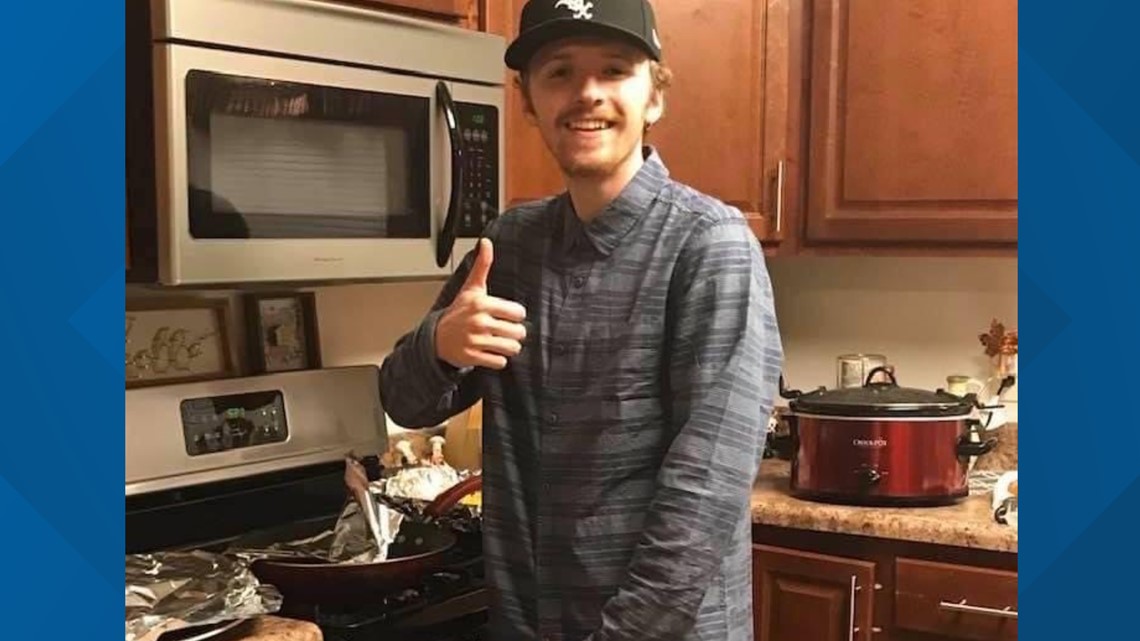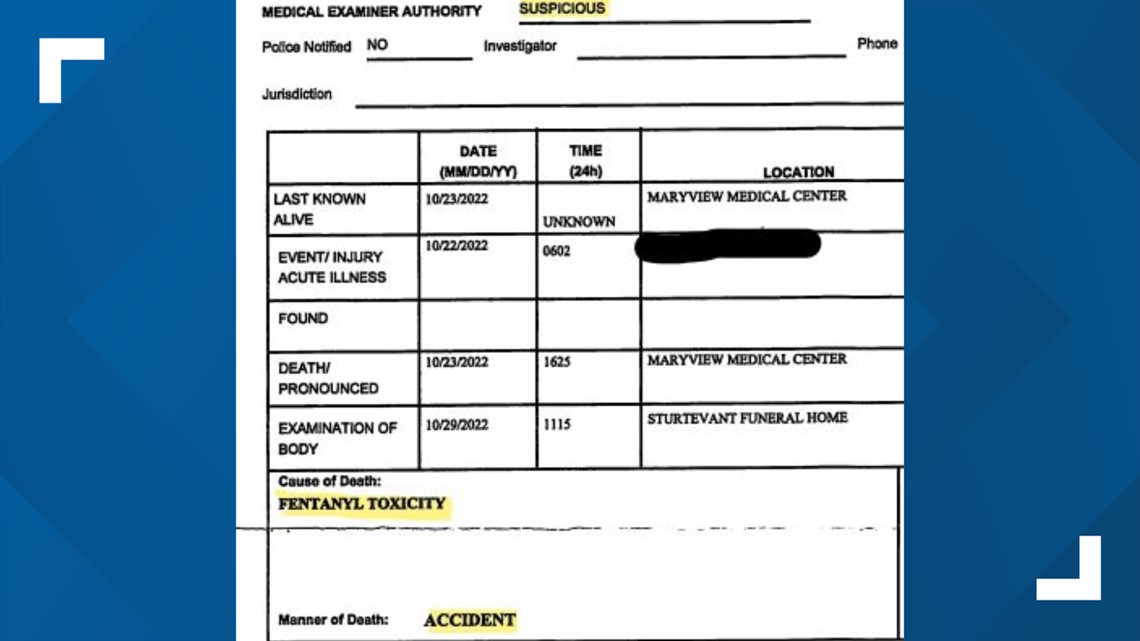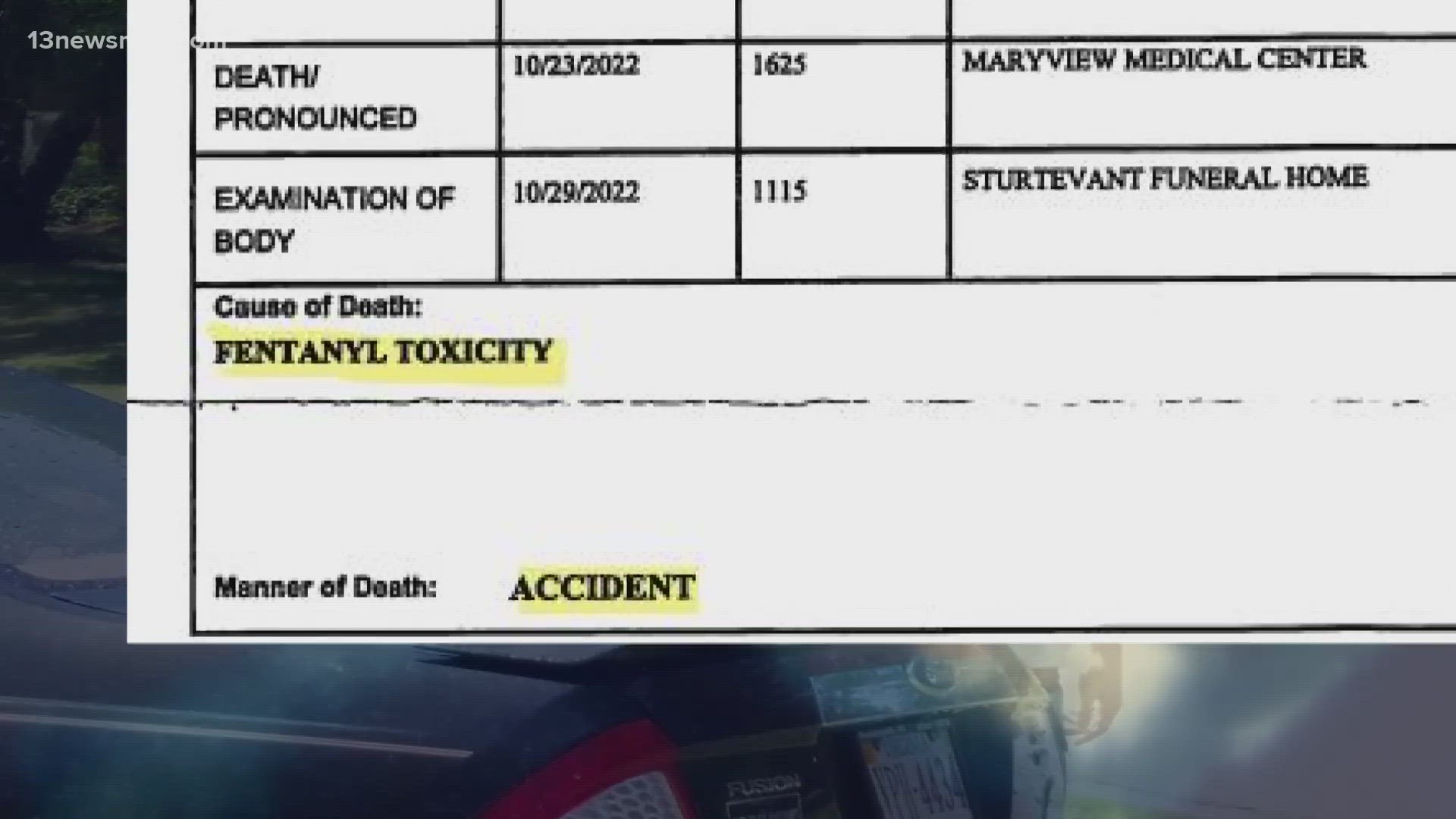PORTSMOUTH, Va. — Fentanyl is the deadliest drug threat our nation has ever encountered.
That’s the dire warning from the DEA.
And as more people die, more states are cracking down with harsher punishments for dealers.
One grieving Portsmouth family says they believe justice means jail time.
We investigate whether that’s even a possibility in Virginia.
One pill can kill
Bryce Ward loved animals and his family.
He played baseball and planned to join the Navy.
He was looking forward to a life of opportunities, but a lethal dose of fentanyl stripped that from him.


“He made a decision, and he wasn’t aware of all the details of that decision and it went the opposite way," said Chris Hartwig, Bryce's stepfather.
Bryce’s parents had no warning their son would one day be included in the sobering and skyrocketing tally of Americans killed by fentanyl.
“He passed away from a lethal dose of fentanyl from a Xanax, so it apparently was laced with that," Bryce's mother, Amber Hartwig said.
Bryce was just 21 when he took that Xanax in October 2022.


The Medical Examiner’s autopsy report lists his death as “suspicious.”
The cause was Fentanyl toxicity, and the manner was accidental.
That ruling doesn't sit well with Amber and Chris Hartwig, who believe the manner of death should be considered a homicide.
"I definitely feel like they should be charged with homicide," Amber said.
Some lawmakers in Richmond agree.
Changing times, changing laws
Delegate Tim Anderson (R-Virginia Beach) introduced a bill this past session in the General Assembly that would have paved the way for prosecutors to charge drug dealers with first-degree murder if they sold a drug laced with fentanyl to someone who later died.
The bill (HB 1455) passed in the House but failed in the Senate where the Judiciary Committee ultimately shot it down.
State Sen. John Edwards (D-Roanoke) serves as co-chair of the Judiciary Committee and voted against the bill.
"I think an aggressive prosecutor could already charge the crime," Sen. Edwards said.
Sen. Edwards, a former U.S. Attorney for the Western District of Virginia during the early 1980s, acknowledged the fentanyl crisis but said the bill as presented did not include "intent" which is needed for first-degree murder.
He points out that lawmakers this session did pass a bill (HB 1682) that classifies fentanyl as a “weapon of terrorism."
Starting July 1, people who knowingly and intentionally manufacture or distribute the drug could be found guilty of a Class 4 felony.
“Everyone agrees [Fentanyl] is poison. And using poison to kill somebody is already a crime," Sen. Edwards said.
Del. Anderson said he doesn't foresee making any amendments to the first-degree murder bill and plans to re-introduce it before lawmakers again next year.
Texas lawmakers recently passed a similar bill that classifies fentanyl overdoses as "poisonings" and opens the door for prosecutors to charge dealers with murder.
The drug is especially dangerous because of how cheap it is. "It’s plentiful and it’s cheap. It’s cheaper than heroin, so if someone wants to cut corners, they’ll add more fentanyl to make a greater profit," David LaBahn explained.
David LaBahn, the president of the Association of Prosecuting Attorneys, points to at least 23 states with specific statutes allowing prosecutors to bring murder charges in drug cases.
Many of those laws were enacted during the crack epidemic of the 90s.
But now the country faces a new epidemic, and he said prosecutors nationwide are starting to feel the pressure to do something about overdose deaths.
“There’s no question about the pressure on prosecutors," LaBahn said. "Because of the sheer numbers, and because of the loss of lives, and because of the grieving family like you have described in Portsmouth. It sure seems like there’s something in the community that we ought to be doing, or that we should be doing more."
Fentanyl poisoning is now the leading cause of death for adults 18 to 45 in America.
Like in the case of Bryce Ward.
What did the investigation find?
Bryce Ward lived in Portsmouth, but it was at a home in Chesapeake where officers responded to a 911 call just after 6 a.m. on October 22, 2022 and found the 21-year-old unresponsive and suffering from an overdose.
Police initially believed it was a non-fatal overdose, and Bryce was transported to the hospital for further treatment.
The next day, October 23, hospital staff at Maryview Medical Center pronounced Bryce dead.
Responding officers never observed any evidence of drug use in plain sight and were unable to locate Bryce's phone in order to seize it for further investigation, according to an account from Chesapeake Police.
In cases of obvious overdose death, detectives will work to identify a dealer either through witnesses or the victim's cell phone.
But Bryce's cell phone still has never been found.
"When it is not immediately apparent the victim will die, if people are uncooperative, and/or if evidence is removed or destroyed (i.e. cell phones) it drastically hinders our ability to investigate the crime," a Chesapeake Police spokesperson explained.
In recent days, detectives have reached back out to Bryce's family to obtain additional information, and they say their investigation is ongoing.
"The Chesapeake Police Department is invested in the criminal prosecution of those who illegally distribute narcotics and pose a danger to the safety of our community," the spokesperson said.
The past few months have been rough for loved ones left to mourn Bryce Ward.
But his mother smiles at the legacy her son leaves behind.
Bryce decided several years ago that he wanted to be an organ donor.
“He saved five lives with his organs and his tissue went to research, so he’s living on," Amber said proudly.

